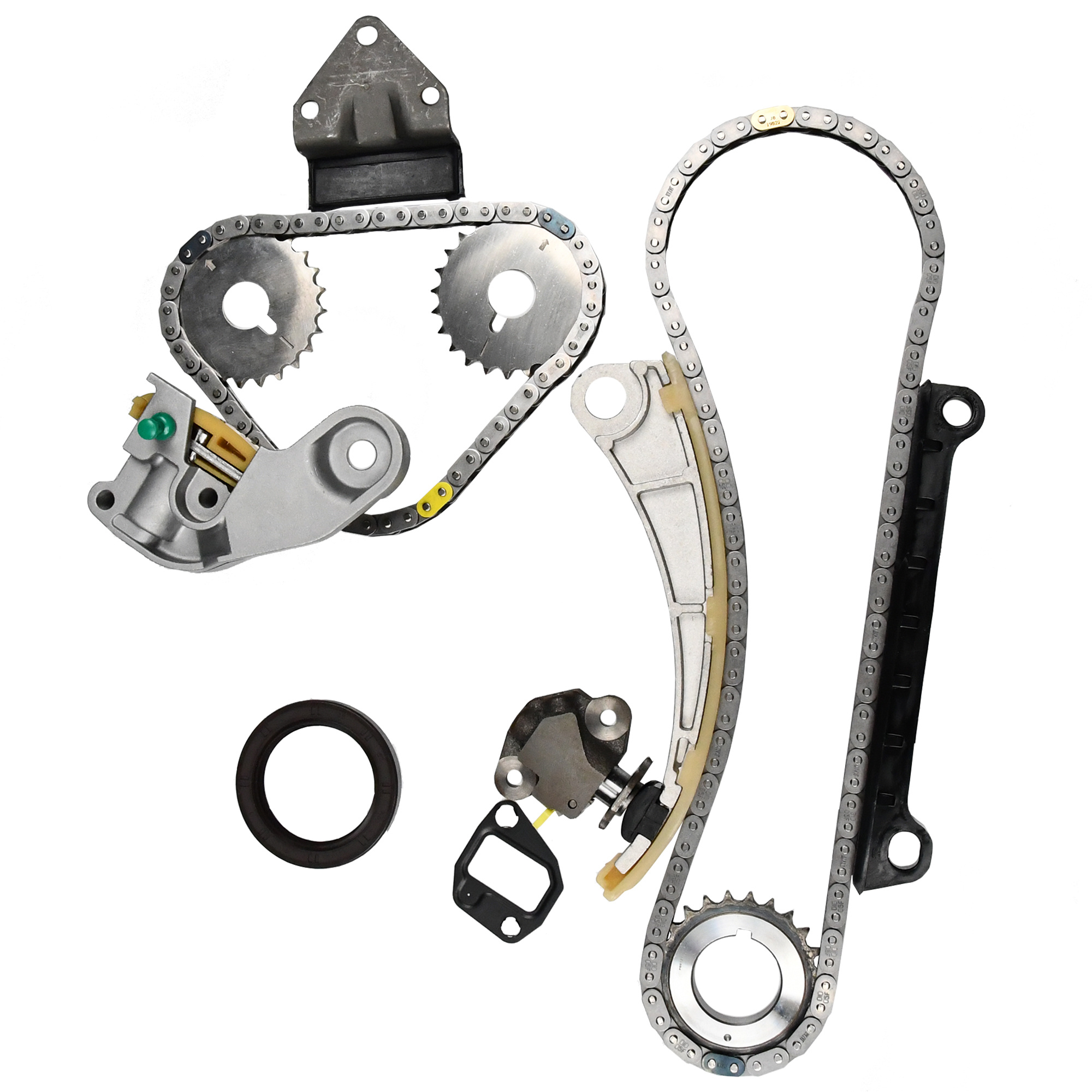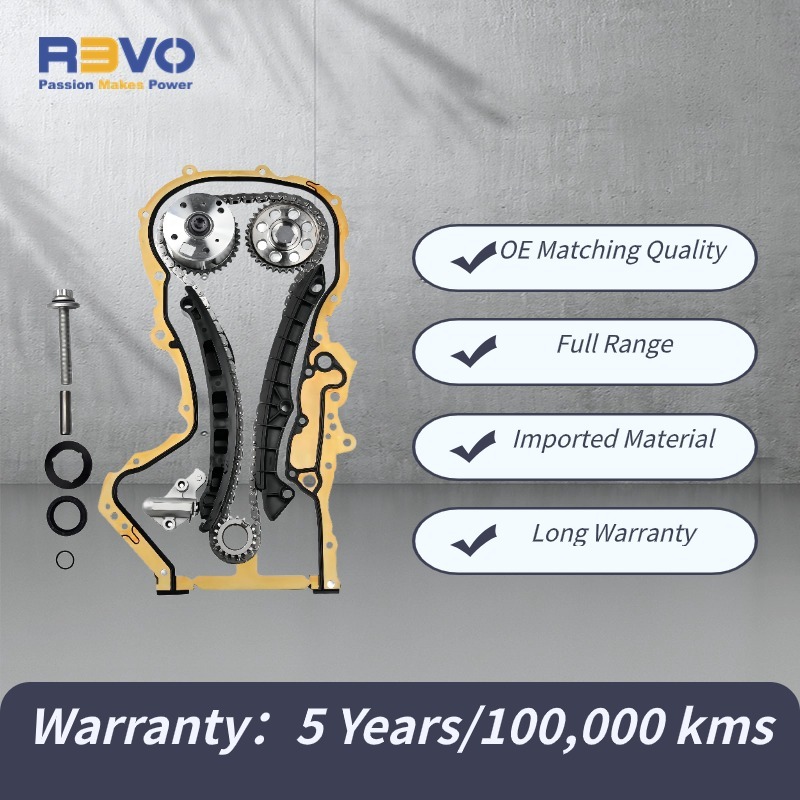Summer Road Trip: Timing Chain Maintenance Tips
The timing chain drives the engine's intake and exhaust valves, ensuring that the engine completes the intake and exhaust processes at the correct times.
With the summer vacation approaching, there's no better time for a spontaneous road trip. However, before you hit the open road, thorough preparation is essential. Planning your route, packing, and arranging accommodations are all important, but ensuring your vehicle is in top condition is paramount. Long-distance travel can be particularly demanding on your car, making a comprehensive inspection crucial.
The engine is the heart of your vehicle, providing the power needed for your journey. Its performance and reliability are directly tied to the condition of the timing chain system, one of the engine's core components.
Today, let's delve into the maintenance of the timing chain system and address potential issues before they arise.
What is a Timing Chain?

The timing chain drives the engine's intake and exhaust valves, ensuring that the engine completes the intake and exhaust processes at the correct times. Compared to traditional timing belts, timing chains are known for their longer lifespan and greater durability, which is why they are widely used in many modern vehicles.
Does the Timing Chain Need Regular Replacement?
The need for regular timing chain replacement varies by car make and model. Generally, the replacement interval for REVO timing chains is quite long, typically over 100,000 kilometers. However, this doesn't mean you can neglect regular inspections and maintenance.
During regular use, be vigilant about the engine's performance. If you notice unusual noises or sluggish acceleration, it's essential to check the timing chain's condition. Additionally, during routine vehicle maintenance, service technicians will inspect the timing chain to ensure it is in good working order.
How to Check if the Timing Chain Needs Replacement?
1. Check if the odometer reads over 100,000 kilometers.
2. Look for an illuminated engine warning light.
3. Note any changes in acceleration performance.
4. Listen for metallic clinking noises from the engine.
5. Use a diagnostic tool to check for error code P0016.
6. Check if the valve timing deviation exceeds 3 degrees.
7. Inspect the tensioner through the observation port to see if it has extended more than 7 teeth.
8. Be aware of abnormal conditions such as increased fuel consumption or oil burning.
9. Check for power loss or sudden jerking when accelerating.
What Are the Risks of a Failing Timing Chain?

1. The engine cannot operate properly.
2. Pistons and valves may collide.
3. Engine damage and power loss.
4. Reduced fuel efficiency.
5. Increased emissions.
6. More noise and vibration.
Despite the high durability of timing chains, they still require regular inspections and replacement when necessary. Over time, the metal material of the chain can fatigue due to constant stress, causing the chain to stretch. The main reasons for timing chain elongation include:
1. Material Fatigue: Constant stretching and compression during high-speed operation can lead to metal fatigue, resulting in elongation.
2. Insufficient Lubrication: Adequate lubrication is crucial for the timing chain's operation. Insufficient or poor-quality engine oil can increase wear and elongation.
3. Engine Overload: Prolonged heavy load operation can exert excessive pressure on internal engine components, including the timing chain, potentially leading to elongation or even breakage.
How to Prevent Timing Chain Elongation?
To extend the timing chain's lifespan and prevent elongation, follow these tips:
1. Regular Oil Changes: Use high-quality oil and adhere to the manufacturer's recommended oil change intervals to ensure adequate lubrication and cleanliness.
2. Maintain Proper Engine Temperature: Avoid prolonged high-speed driving and frequent rapid acceleration to reduce internal engine stress and temperature.
3. Routine Inspections: During regular vehicle maintenance, have a professional technician check the timing chain's condition and tension to identify and address any issues promptly.
Warm Reminder

The timing chain system should not be overlooked during routine vehicle maintenance. "Maintenance-free" does not mean "no inspection" or "no replacement." Vehicles that have reached 5 years or 100,000 kilometers should have their timing chain system inspected and maintained regularly. If issues arise, replace the timing chain maintenance kit promptly.
Choose a reliable brand to eliminate quality concerns! For more information, stay tuned to the official REVO website at www.revoauto.com.
Related news
2024-06-28
Tel: +86-(0)571-87565261 Email: marketing@revoauto.com Add: No.50, Haoshan Road, Pingyao, Yuhang District, Hangzhou, Zhejiang, China© 2023 REVO. All rights reserved. Privacy
Tel: +86-(0)571-87565261
Email: marketing@revoauto.com
Add: No.50, Haoshan Road, Pingyao, Yuhang District, Hangzhou, Zhejiang, China
© 2023 REVO. All rights reserved. Privacy





